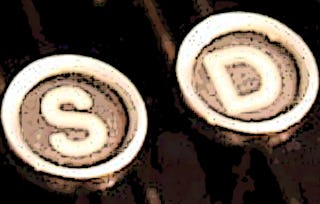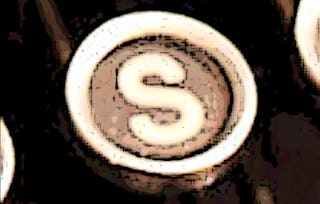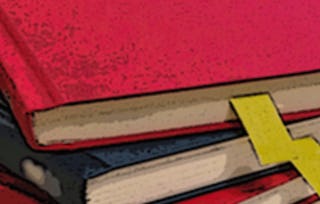In this course aspiring writers will be introduced to perhaps the most elemental and often the most challenging element of story: plot. We will learn what keeps it moving, how it manipulates our feelings, expectations, and desires. We will examine the choices storytellers make to snag our imaginations, drag them into a fictional world, and keep them there. We will learn how to outline and structure a plot, discuss narrative arc, pacing and reversals and reveal the inevitable surprise: connecting the beginning, middle and end.

Ends soon: Gain next-level skills with Coursera Plus for $199 (regularly $399). Save now.

Creative Writing: The Craft of Plot
This course is part of Creative Writing Specialization

Instructor: Brando Skyhorse
333,992 already enrolled
Included with
(5,033 reviews)
Skills you'll gain
Details to know

Add to your LinkedIn profile
See how employees at top companies are mastering in-demand skills

Build your subject-matter expertise
- Learn new concepts from industry experts
- Gain a foundational understanding of a subject or tool
- Develop job-relevant skills with hands-on projects
- Earn a shareable career certificate

There are 4 modules in this course
In this module, we'll learn essentials about plot definitions and mechanics. What is plot? How does plot shape a narrative? What makes a strong plot? How is plot different from a story? We'll also discuss how plot works in actual books you're probably familiar with, such as the Harry Potter series, how character and action equals plot, and the five key questions you should ask yourself when creating a dynamic character.
What's included
4 videos2 readings1 peer review
In this module we're going to learn what story structure is and how by understanding structure you can learn how to sequence the events in your plot to help maximize your own storytelling abilities.We'll talk about Freytag's pyramid, the five act structure, how that structure can be found in works of classic literature, and have a conversation about how structure and outlines can help organize the stories you want to tell.
What's included
3 videos1 peer review
Scenes are the building blocks of storytelling. But what is a scene? And how does a scene move plot forward? In this module we'll learn about the difference between telling and showing, the five key elements each scene should have, offer some examples of effective scenes, and have a conversation about how setting and description can make a scene come alive.
What's included
3 videos1 peer review
This modules deals with the specifics of editing and revising your work. This process of revision starts with the first draft (which will now become your second draft) and continues until the manuscript’s ready to send to an agent. Included here are a twenty-one point checklist on what to do once you have a completed first draft, and conversations about creating characters with strong motivations, and how to define language that gets rewritten vs language that gets cut.
What's included
4 videos1 peer review
Earn a career certificate
Add this credential to your LinkedIn profile, resume, or CV. Share it on social media and in your performance review.
Instructor

Offered by
Explore more from Music and Art
 Status: Free Trial
Status: Free TrialWesleyan University
 Status: Free Trial
Status: Free TrialWesleyan University
 Status: Free Trial
Status: Free TrialWesleyan University
 Status: Free Trial
Status: Free TrialWesleyan University
Why people choose Coursera for their career




Learner reviews
5,033 reviews
- 5 stars
77.01%
- 4 stars
17.30%
- 3 stars
3.61%
- 2 stars
0.93%
- 1 star
1.13%
Showing 3 of 5033
Reviewed on Oct 12, 2018
Extremely helpful! I'm rethinking a lot of my previous approach to writing, especially when it comes to creating interesting scenes and ensuring my characters each have a clear desire while I write.
Reviewed on Mar 10, 2019
It was a good course. It was a good grading method, I was a little opposed in the beginning but I now I understand the value of having more than a teacher read your work. It is very much worth it.
Reviewed on Sep 1, 2020
I have always been an avid reader. I took this class to familiarize myself with the techniques behind plot development. I would highly recommend this course, and the creative writing specialization.

Open new doors with Coursera Plus
Unlimited access to 10,000+ world-class courses, hands-on projects, and job-ready certificate programs - all included in your subscription
Advance your career with an online degree
Earn a degree from world-class universities - 100% online
Join over 3,400 global companies that choose Coursera for Business
Upskill your employees to excel in the digital economy
Frequently asked questions
To access the course materials, assignments and to earn a Certificate, you will need to purchase the Certificate experience when you enroll in a course. You can try a Free Trial instead, or apply for Financial Aid. The course may offer 'Full Course, No Certificate' instead. This option lets you see all course materials, submit required assessments, and get a final grade. This also means that you will not be able to purchase a Certificate experience.
When you enroll in the course, you get access to all of the courses in the Specialization, and you earn a certificate when you complete the work. Your electronic Certificate will be added to your Accomplishments page - from there, you can print your Certificate or add it to your LinkedIn profile.
Yes. In select learning programs, you can apply for financial aid or a scholarship if you can’t afford the enrollment fee. If fin aid or scholarship is available for your learning program selection, you’ll find a link to apply on the description page.
More questions
Financial aid available,
¹ Some assignments in this course are AI-graded. For these assignments, your data will be used in accordance with Coursera's Privacy Notice.

